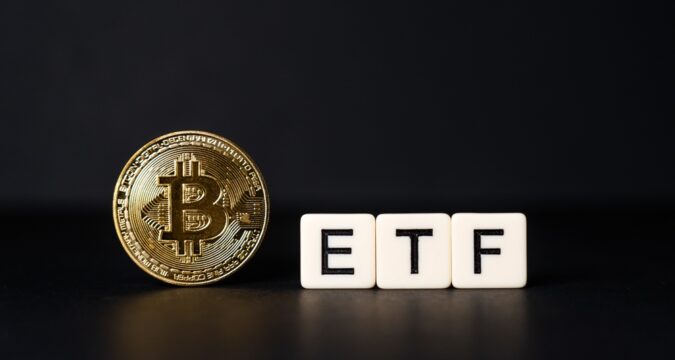
Rising crypto prices have attracted millions of investors in 2024, signaling a massive shift in the investment scene. Top digital asset, Bitcoin, is now considered a shield against weakening fiat currencies. And that’s not the only reason Bitcoin has become an appealing asset in the eyes of investors. Its decentralized nature, which allows it to function without relying on traditional financial systems, makes it more interesting. Furthermore, Bitcoin facilitates quicker and cheaper transactions than conventional banks.
While you can invest directly in Bitcoin, there are other alternatives, such as ETFs (Exchange-Traded Funds), which enable you to get exposure to the asset. If you wish to invest in Bitcoin ETFs, we recommend reading this article to understand their benefits and associated risks.
The Rise of Bitcoin ETFs
Given the regulatory uncertainty in the crypto space, many traditional asset managers initially hesitated to offer Bitcoin ETFs. However, the growing acceptance of Bitcoin by people around the globe has forced conventional companies to include crypto ETFs in their portfolios.
Bitcoin Exchange-Traded Funds give investors a regulated option to get exposed to BTC without worrying about how to manage the asset as ETF issuers take this responsibility.
It is worth mentioning that before approving spot Bitcoin ETFs earlier this year, the US regulators had rejected them several times, arguing that their prices could be manipulated. However, the entrance of trusted asset managers like BlackRock made American financial watchdogs reconsider their decisions.
Benefits of Investing in Bitcoin ETFs
Investors in Bitcoin ETFs enjoy several benefits, including:
Ease of Access
You only need a traditional brokerage account to start investing in Bitcoin ETFs. This is ideal, especially for new investors with zero knowledge of how to use Web3 wallets or open exchange accounts.
Regulatory Oversight
Bitcoin ETFs are issued by regulated financial institutions, thus providing investors with a sense of protection. Furthermore, shares of these ETFs are traded only on licensed brokerage platforms, which are required to adopt stringent security measures to safeguard investors’ funds.
Diversification
Bitcoin ETFs have allowed investors to diversify their portfolios. Considering BTC’s correlation with traditional assets like bonds and stocks is low, there is a chance that Bitcoin ETFs could be rallying when other financial instruments are underperforming, thus shielding investors against market downturns.
Liquidity
Bitcoin ETFs boast a deeper liquidity than other crypto investments. This makes it easy for investors to buy or sell their shares.
Tax Efficiency
Taxes imposed on Bitcoin ETF investments are more favorable than those charged on direct BTC investments. For instance, some countries deduct capital gain taxes only after investors sell their shareholdings. Meanwhile, Bitcoin holders in some regions are charged taxes even when exchanging their coins for others.
Risks of Investing in Bitcoin ETFs
While Bitcoin ETF investments carry several benefits, there are numerous associated risks that you should know about. They include:
Volatility
Since Bitcoin ETFs have a strong connection with cryptocurrencies, which are known for their extreme volatility, they can experience massive price fluctuations within a short time.
Market Risk
Investors in Bitcoin ETFs are exposed to regulatory and security issues common in the digital asset sector. For example, regulatory crackdowns in countries like the United States have caused severe market downturns in the past.
Fee Structures
Fees charged on Bitcoin ETFs are considerably higher than those imposed on conventional ETFs. That’s due to the high costs incurred in safeguarding and managing the underlying BTC holdings.
Indirect Ownership
As mentioned, investors in Bitcoin ETFs do not hold BTC. Instead, they buy shares of the ETFs, while the ETF issuers hold the purchased Bitcoin on their behalf. This denies investors the chance to enjoy the benefits of holding BTC in their wallets.
Tracking Error
Bitcoin ETFs track the price performance of BTC. However, tracking errors caused by factors like fund expenditures means that ETFs will not always reflect real-time changes in Bitcoin’s price.
Conclusion
Bitcoin ETFs have simplified how traditional investors access the crypto markets. However, before investing, understanding the risks involved is recommended.




